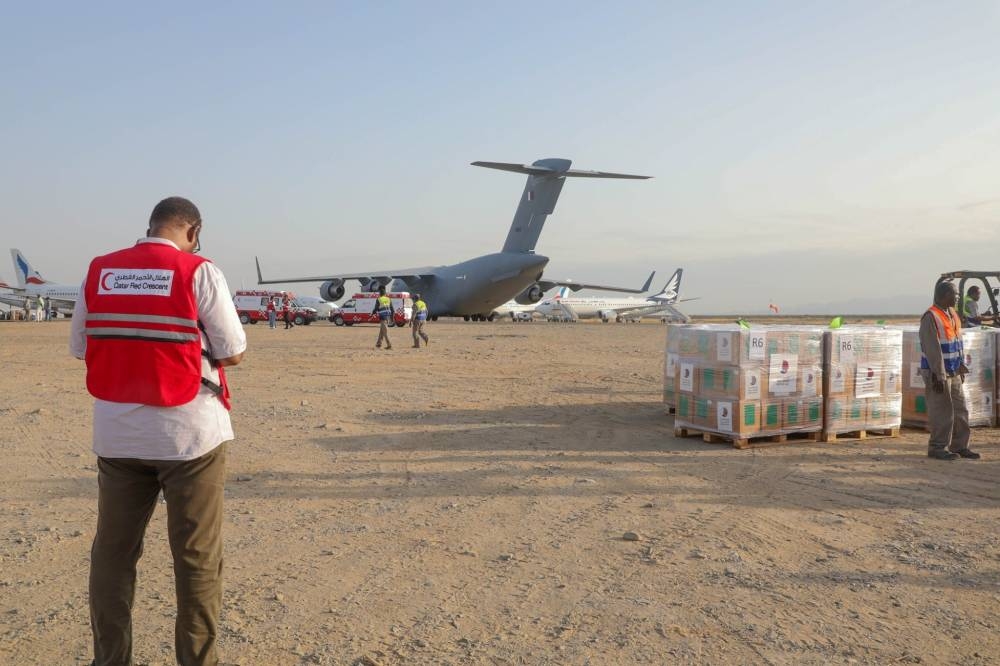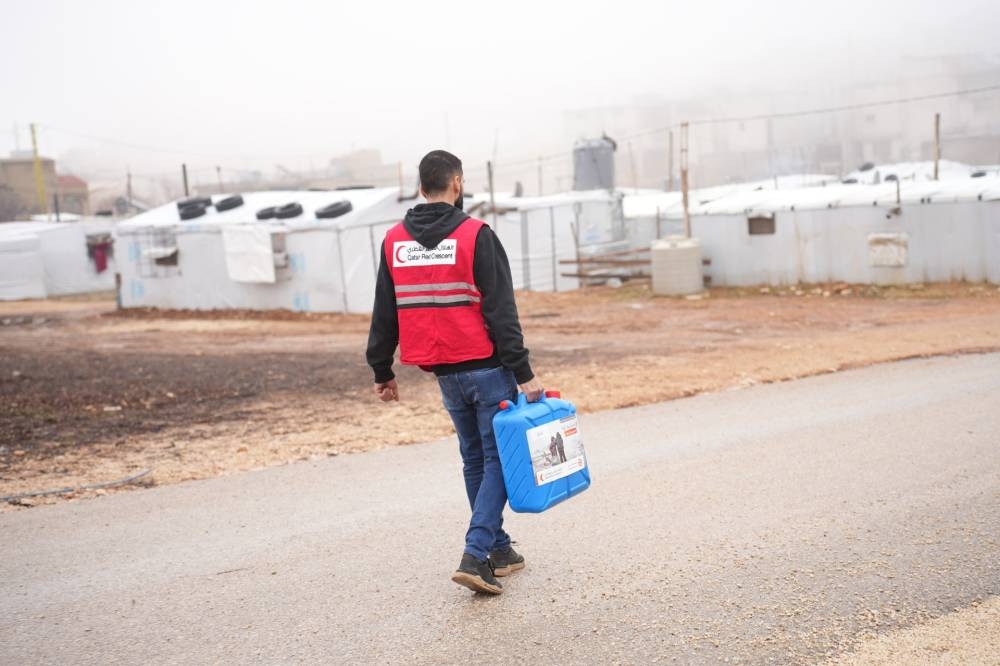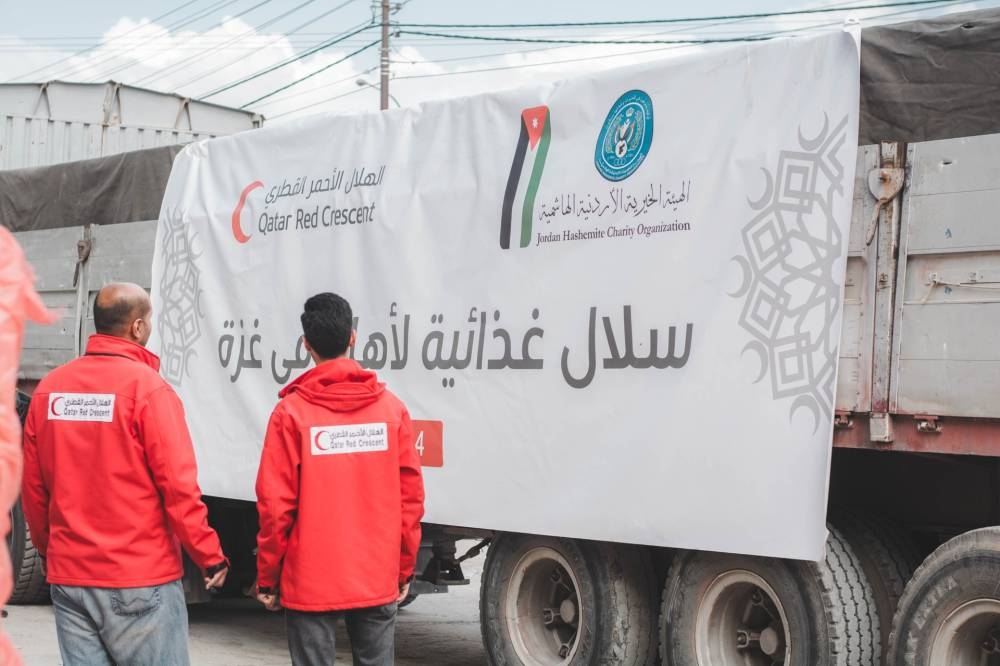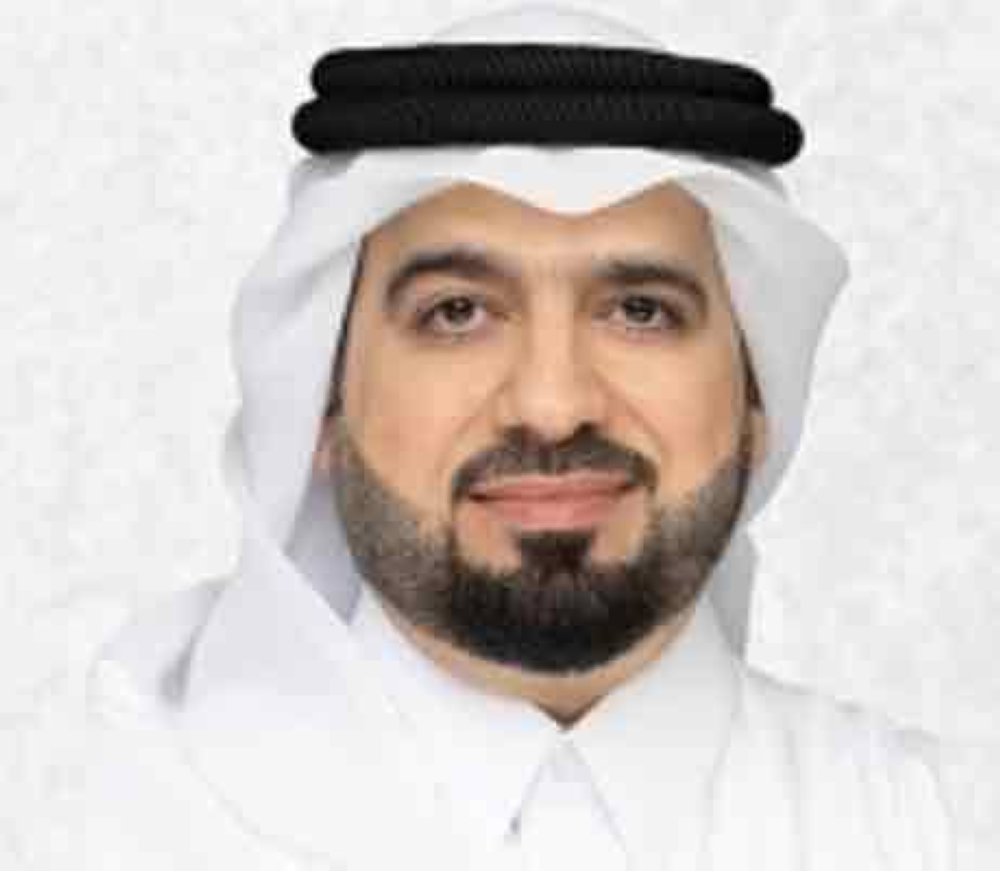The Qatar Red Crescent Society (QRCS) said that despite all the challenges, it has carried out dozens of humanitarian and development projects worth more than $130mn in the Gaza Strip, the West Bank and Jerusalem over nearly two decades.
HE the Secretary-General of QRCS Faisal Mohamed al-Emadi said, in an interview with QNA, that since the eruption of the recent war on the Palestinian people in Gaza, QRCS has been in a state of full alert, through the Emergency Information Management Centre at its headquarters in Doha, its sectors and departments concerned with the response, and its representative office in Gaza, which was established in 2008, as well as its relief teams in Egypt and Jordan.
QRCS, he said, succeeded in providing 4,766 tonnes of relief aid carried by 116 aircraft within the Qatari humanitarian air bridge from Doha to Al-Arish, Egypt, and from there to the Gaza Strip via the Rafah crossing, in addition to a Qatari aid ship, in order to meet the needs of the people of the Strip for food, shelter, healthcare, water and sanitation.
HE al-Emadi revealed that the number of beneficiaries of this aid so far is estimated at about 1mn people, at a total cost exceeding $13mn, noting that QRCS seeks during the coming period to continue with the assistance through a package of projects announced on its website. QRCS will be able, thanks to the donations, to provide new assistance in the areas of urgent relief: food, health, medical convoys, shelter, water, sanitation, education, and clothing for school students, with a total value of QR46mn, benefiting nearly half a million people.
In response to a question about the aspects of co-operation and co-ordination mechanisms with partner agencies to implement relief interventions in the Gaza Strip, he explained that given the magnitude of the Qatari response to the humanitarian ordeal in Gaza, there were many state institutions involved in this response. "Therefore, QRCS was keen to co-operate with a number of partner agencies, whether governmental and none-governmental, such as Qatar Fund for Development (QFFD), which was and still is a major supporter of a large part of the QRCS's interventions in the crisis."
He added that the latest form of this support was funding a partnership agreement between the QRCS and the UN Relief and Works Agency for Palestine Refugees (UNRWA) to provide cash assistance worth $4.5mn to 4,400 Palestinian workers and patients from the Gaza Strip who are currently stranded in the West Bank.
He said that the Qatar Development Fund (QFFD) also contributes to supporting the operation of the QRCS's field hospital, which office in the Gaza Strip oversees response, in co-operation with several entities such as: the Palestinian Red Crescent, the Egyptian Red Crescent, and the Jordanian Hashemite Charity Organisation.
In this context, the QRCS Secretary-General touched on the tragedy of the Gaza Strip that has been going on for over 18 years of siege, restrictions and closure of crossings, in addition to the Strip being subjected to aggression more than once during that period, which made living conditions more difficult for the vast majority of the Strip's residents.
He pointed that despite everything, the latest aggression, which continues until this moment, remains the most horrific and bloody, as no one or thing in the Strip is safe from the brutal bombing.
He pointed out that all this is happening in parallel with preventing and obstructing the arrival of any form of relief aid to the affected people of Gaza, turning life in the stricken Strip into a hell of displacement, disease, starvation and systematic targeting.
Relief workers were not spared from the ravages of the aggression either, he said explaining that as over 300 humanitarian workers were killed while performing their humanitarian duty in the field. QRCS was shocked by the martyrdom of one of its medical workers in Gaza hospitals, who was a consultant and assistant professor of kidney diseases, and a graduate of the QRCS programme for specialized medical scholarships in Jordan, he said.
Regarding the QRCS's ability to continue responding to the developments of the crisis after the aggression expanded to include many areas of the sisterly Lebanese Republic, al-Emadi said: "We are closely following the deteriorating humanitarian situation in Lebanon, as it warns of a real humanitarian disaster if the intensive bombing of cities and villages continues. Hundreds of thousands have been displaced, in light of the severe shortage in response capabilities of the official Lebanese authorities."
He explained that in light of this crisis, the QRCS was one of the first humanitarian organisations to take the initiative to provide urgent food, health and relief assistance, as it allocated QR1mn from its disaster response fund as a first phase of urgent relief intervention to meet the needs of 1,000 displaced families for food and non-food items, through coordination between its representative office in Lebanon and the Lebanese Red Cross.
To mobilise community support for Lebanon, he called on all those who are able to donate to the relief projects announced on the QRCS's website to help provide urgent needs for 14,000 beneficiaries from the most affected families, which include distributing relief aid and food baskets, providing medicines and medical supplies, and performing urgent surgeries.
Regarding the Qatar Red Crescent's efforts to alleviate the suffering of those affected by the armed conflict in Sudan, al-Emadi considered the QRCS office in Sudan to be one of the most active humanitarian parties operating there, and the most influential in the lives of local communities affected by natural disasters and security disturbances, as it cooperates closely with many partners such as the Sudanese Red Crescent, the Federal Ministry of Health, the Humanitarian Aid Commission, among others.
He added that the office has branches in the states of Khartoum, Al-Jazirah, Sinnar, Kassala, Al-Qadarif, White Nile, Northern, South Kordofan, River Nile, West and North Darfur, indicating that following the escalation of military operations during 2023, the office's work team was transferred to the city of Port Sudan so that its members could resume interventions and humanitarian aid provided in various states, which include the sectors of food security, water and sanitation, health, shelter and non-food items.
He said that more than 845,000 people have benefited from this aid so far, at a total cost of $4.7mn, noting that most of this aid was delivered to Sudan via the Qatari air bridge, with the support of QFFD and other Qatari institutions.
"The most recent activities of the office were the distribution of 2,000 food baskets for the benefit of 12,000 beneficiaries in Gedaref State, eastern Sudan, in addition to visiting several hospitals and health centers in the state to assess needs, in preparation for carrying new humanitarian interventions there in co-ordination with the relevant authorities," al-Emadi said.
He touched on QRCS's plans to alleviate the suffering of those affected by these crises and others with the onset of winter, saying in this regard that the new version of the Warm Winter Campaign for 2024-2025 was recently launched, under the slogan "Their Warmth is a Duty", and includes a series of projects and winter aid to be implemented with the support of the people of Qatar, to help more than 179,000 people in 13 priority countries, such as: Palestine, Lebanon, Sudan, Yemen, Syria, Somalia, Afghanistan and Bangladesh.
He explained that these activities planned to be implemented within the campaign vary between providing winter aid (such as clothes, blankets and mattresses), food baskets, drinking water, baby milk, medicines and medical supplies, furniture and household appliances, and heating fuel, in addition to working to build and renovate a number of homes to improve living conditions, sponsoring orphans and the elderly in nursing homes for a full year, and supplying flour to bakeries to produce and distribute bread for free to displaced families and host communities.




HE the Secretary-General of QRCS Faisal Mohamed al-Emadi
